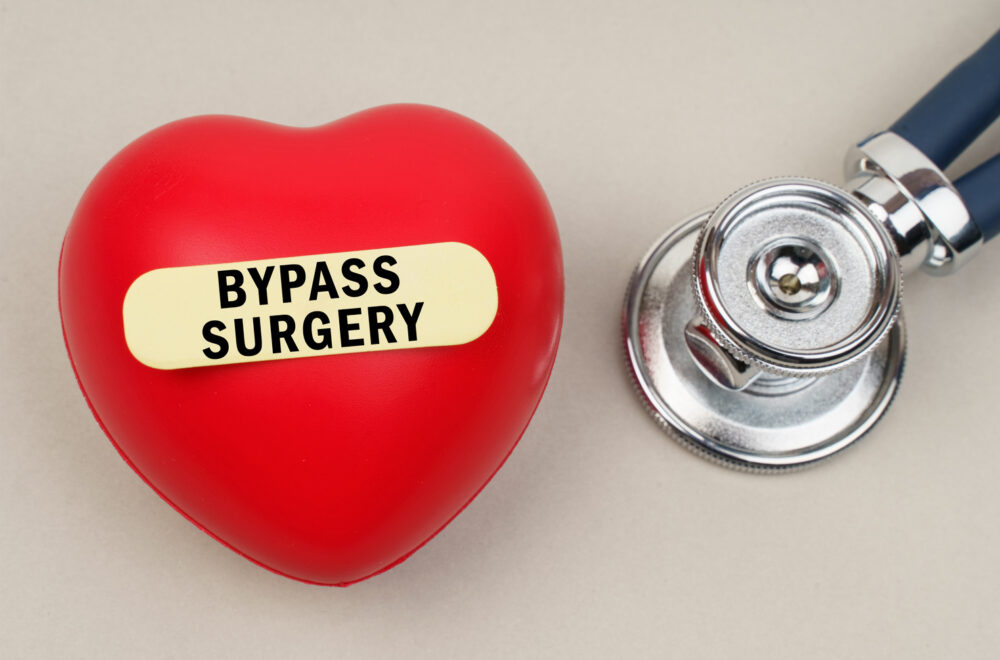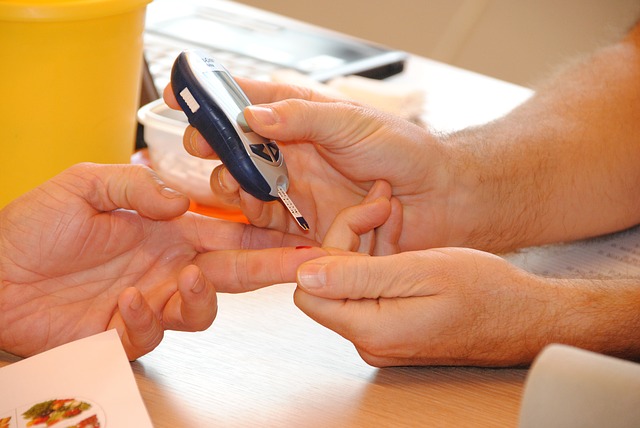Introduction to Roux-en-Y Gastric Bypass Surgery
Obesity poses significant health risks and challenges for millions of people. For those struggling with severe obesity, traditional weight loss methods such as diet and exercise often prove ineffective. In these cases, bariatric surgery can be a life-changing option, and one of the most common procedures is Roux-en-Y gastric bypass surgery (RYGB).
The reason the Roux-en-Y procedure is used so often is that it has been very effective in the treatment of obesity, and the health-related issues that frequently come along with carrying extra weight. Understanding this procedure, its benefits, any potential risks, plus pre-op and post-operative considerations, can help you decide if it’s right for you.
The procedure was first devised and performed in the late 1800s for gastric obstruction by Professor Cesar Roux. Since then, the Roux-en-Y gastric bypass evolved and developed into an application for weight loss and has become one of the most widely practiced and studied bariatric surgeries worldwide. While it was initially designed only to treat severe obesity, the procedure has become known as a metabolic operation and is a powerful treatment for a wide range of obesity-related metabolic conditions, including type 2 diabetes, sleep apnea, and hypertension.
The Roux-en-Y operation and other bariatric surgery procedures remain important options for patients seeking sustainable weight loss and improved overall health. Malladi Bariatrics is a leading provider of Roux-en-Y gastric bypass surgeries, giving you the support you need and answering your questions to allow you to improve your health and quality of life for the future.
Understanding Roux-en-Y Gastric Bypass Surgery
Roux-en-Y Gastric Bypass surgery is a complex, multi-stage operation that significantly alters the structure of the stomach and the digestive process. This can provide important and impressive benefits to many people who have tried other methods of weight loss without success.
There are specific steps included in a RYGB surgery.
Anesthesia
The surgery typically begins with the administration of general anesthesia, ensuring that you remain asleep and pain-free throughout the procedure.
Laparoscopic Technique
In most cases, Dr. Malladi uses a minimally invasive, laparoscopic approach to RYGB surgery. This method uses cameras and special instruments that allow for the use of much smaller incisions and fewer stitches. This approach means less pain, easier recovery, and a lower risk of infection and complications.
Creation of a Small Pouch
The RYGB divides the stomach into two parts: a small upper pouch and a larger lower portion. The small pouch is created by stapling or sewing the upper section of the stomach, which reduces its size to about the size of a walnut. This pouch will hold significantly less food than the original stomach, leading to early satiety and reduced calorie intake.
Separation of the Small Intestine
The next step involves rerouting the small intestine. The surgeon attaches the small intestine directly to the small pouch, creating what is called the “Roux limb.” The remaining portion of the small intestine is reconnected further down the digestive tract, allowing digestive juices to mix with food later in the process.
Completion of the Surgery
The procedure concludes with the surgeon sealing the incisions and ensuring there are no leaks in the digestive system. You’ll then be carefully monitored as you wake up from anesthesia.
Benefits of Roux-en-Y Gastric Bypass Surgery
The most notable aspects of any RYGB surgery are the benefits it offers. While the experience is a little different for everyone, you can expect to see several issues resolved. While weight loss is the goal of gastric bypass surgery, it’s important to note that many other conditions may also be resolved as weight goes down.
Understanding the main benefits you can expect will help you decide if the Roux-en-Y procedure is the best one for your weight loss and health improvement goals.
Significant Weight Loss
One of the primary benefits of the Roux-en-Y operation is the remarkable weight loss that patients typically experience. You may be able to lose 60-80% of your excess body weight within the first year after the procedure.
Resolution of Other Health Problems
Gastric bypass surgery often leads to the improvement or resolution of obesity-related comorbidities. These include issues such as type 2 diabetes, hypertension, sleep apnea, and others. An improvement in overall health adds to and enhances quality of life.
Sustained Weight Loss
Unlike a number of other weight loss methods, gastric bypass surgery typically results in sustained, long-term weight loss. This comes from the alterations made to the digestive process, and the resultant changes in eating habits.
Enhanced Quality of Life
Many patients report improved mobility, increased energy levels, and a better quality of life after gastric bypass surgery. The psychological and emotional benefits can be just as significant as the physical ones and can restore your ability to participate in activities you may not have been able to engage in for some time.
Reduced Risk of Mortality
Bariatric surgery, including gastric bypass, is associated with a reduced risk of mortality among individuals with severe obesity. This surgery can extend your life expectancy by reducing the risk of health complications related to obesity.
Eligibility and Pre-Operative Considerations
As with any surgery, there are eligibility requirements and pre-operative considerations that must be carefully addressed. This can help you understand whether you’re a candidate for the Roux-en-Y procedure, and what you’ll need to focus on before surgery.
Mallardi Bariatrics provides a pre-bariatric surgery diet guide that will give you valuable information on how to be as prepared as possible before your surgery date. Two weeks before your surgery date, you’ll transition to a liquid or mostly liquid diet, depending on your specific situation.
You’ll also need to avoid alcohol, smoking, carbonated drinks, and certain medications, as well as some specific kinds of foods. Not following the diet could mean delaying or canceling your surgery, so it’s vital that you follow your surgeon’s instructions closely.
Along with diet restrictions, there are other issues to consider in determining your eligibility. The standard eligibility criteria for weight loss surgery are as follows: You must have a BMI (body mass index) over 40, or over 35 if you have a weight-related health condition such as diabetes. Additionally, you need to have tried other weight loss methods before without success, including a medically supervised weight loss program.
However, eligibility criteria for bariatric surgeries have changed, making more people candidates. Some patients are now eligible for bariatric surgery if they have a BMI of 30+ along with obesity-related health problems. Eligibility will be evaluated on a case by case basis at the time of consultation. Meeting these criteria does guarantee weight loss surgery is for you, but you could be a candidate. (Please note that while you may qualify medically under this new criteria, your insurance company may not have revised their rules for coverage accordingly. Be sure to ask.)
You’ll also need to have pre-operative evaluations to determine any other health conditions you have and determine the best way to address them. That can reduce any risks and make Roux-en-Y surgery safer for you. While there are risks with any surgery, the goal is to make those risks as small as possible. Proper evaluation and pre-operative preparation can do that.
Experience Life Anew with Roux-en-Y Gastric Bypass at Malladi Bariatrics
Roux-en-Y Gastric Bypass surgery is a powerful tool for many people struggling with severe obesity and its associated health complications. While there are risks and changes to your lifestyle are required, RYGB offers significant weight loss, improved overall health, and a better quality of life.
If you’re thinking about the RYGB procedure, be sure you’re working with a surgeon and staff you can trust, and who have the experience and expertise you’re looking for.
Dr. Malladi uses a patient-centered approach, and is deeply committed to personalized care and patient comfort. She focuses on bariatric surgery, and has performed thousands of advanced surgeries on patients. She has also conducted international teaching webinars, presented nationally, and been widely published in gastric surgery literature.
The state-of-the-art facilities and technology available at Malladi Bariatrics, along with pre- and post-operative counseling and follow-up care, will provide you with the treatment options and support you need to move through your procedure and on to the next chapter in your life.
Dr. Malladi has thousands of satisfied patients, including Daniel E., who says, “Dr. Malladi changed my life (and probably extended it as well). She made sure I was prepared and committed for the surgery and the dedication needed to follow. Her background and skillset are beyond reproach.”
Michelle W., another highly satisfied patient, says, “Dr. Malladi is an outstanding physician. She is extremely knowledgeable and takes the time to explain everything in detail at each appointment. She is always happy to answer questions in depth. Dr. Malladi is an excellent surgeon and takes the time to see you afterward and discuss the procedure. She is also incredibly compassionate.”
When you’re ready to start your gastric bypass journey, Dr. Malladi and her staff are here to help you feel confident in your weight loss decision. With the right support and the best procedure for your needs, you can experience a brighter future, fewer weight-related health problems, and an improved quality of life.







